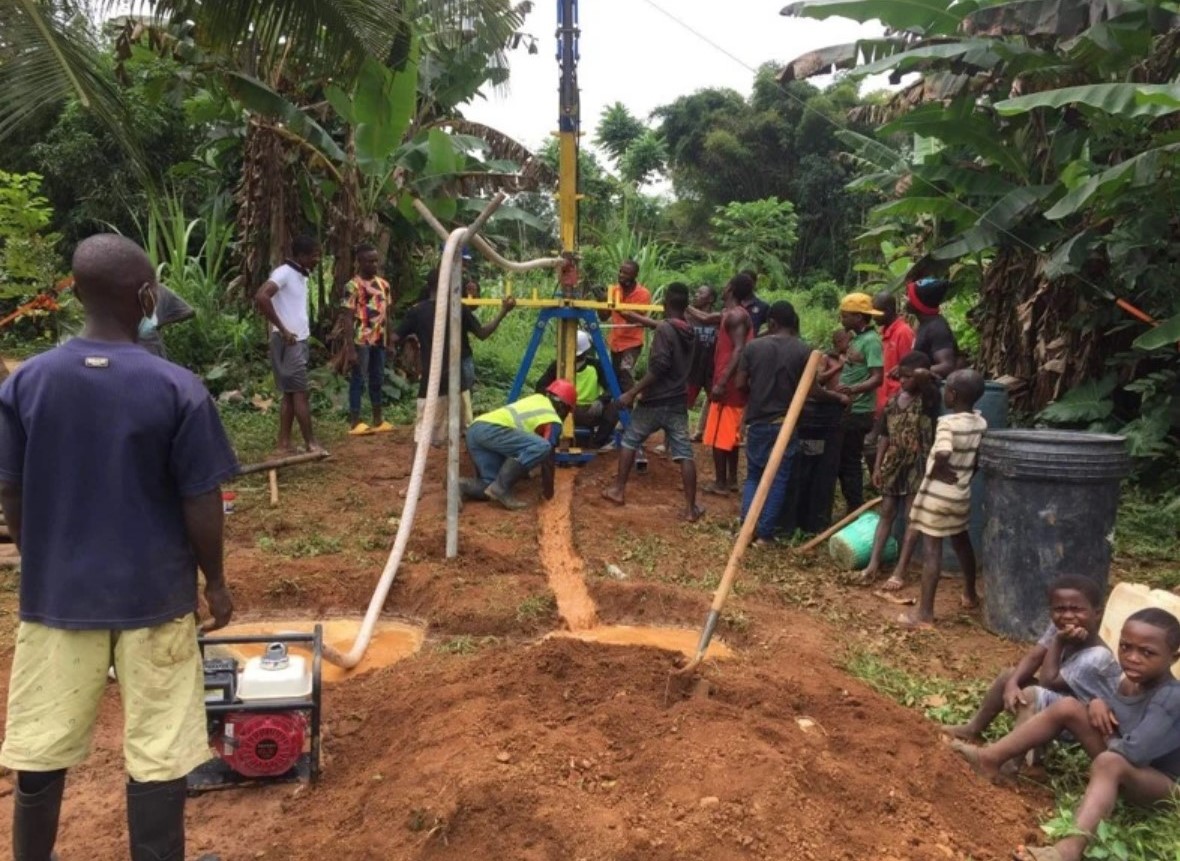Nonprofits, NGOs and religious groups purchase the Village Drill to accomplish their goals of providing access to clean water in the developing world.
A team in Liberia recently reached a major milestone – 100 wells! George Wissing and Oliver Adams with the group Friends of Liberia purchased their first Village Drill in 2021 and reached that 100-well mark in March 2023.
‘Ingenuity’ of the Village Drill provides long-term water
Here’s what the team is saying about their success:
“Our dedicated team based in Liberia uses a human-powered drill to bore a well deep into the aquifer and provide a long-term water source for each village. Most of our wells are located far from power, so we rely on the ingenuity of the Village Drill to dig wells deep into the ground. This not only provides long-term water but eliminates the dangers associated with hand-digging wells.”
Oliver started thinking about how he could help Liberians back in 2013.
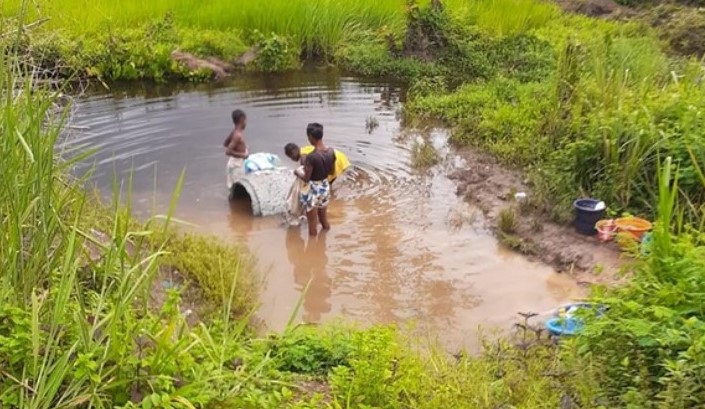
“They don’t have access to clean drinking water so they have to walk many miles every day to get contaminated water from creeks, streams or ponds,” he says. “This is the same water that animals defecate in, people bathe and do laundry in. It makes the people in the village sick. It gives them diarrhea and other diseases.”
Why water wells dug by hand often fail
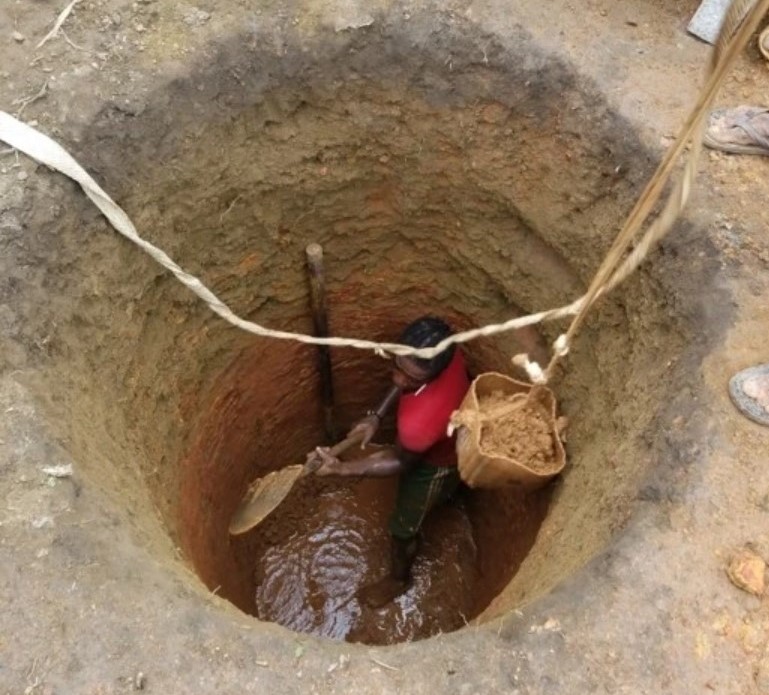
Friends of Liberia started by collecting donations from churches to hand-dig wells – one well per year, but the group found hand-digging wells to be difficult and dangerous, sometimes even deadly when a well caves in on a worker. Plus, because the wells don’t go very deep, they can easily go dry, leaving the villagers forced to return to their old source of contaminated water.
George, who became known as Mr. Goodwater, started researching solutions until he found our nonprofit, WHOlives. He bought the Village Drill, which runs on manpower and can drill more than 250 feet deep, as well as a truck to transport it around Liberia.
Compare the Village Drill to other drilling methods.
WHOlives trains drill teams to use the Village Drill
Mr. Goodwater assembled a drill team of five people, and WHOlives flew a trainer to Liberia to show how the drill works through a combination of classroom and in-the-field instruction.
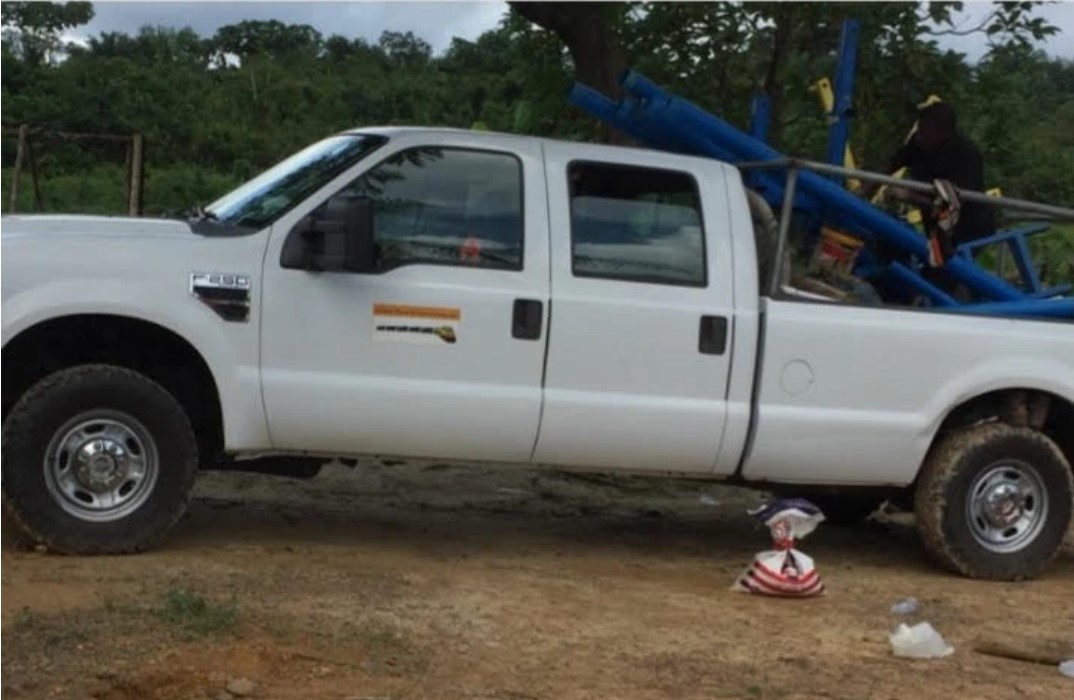
The Village Drill takes less than two hours to set up in the field, and drilling a well can take from a couple of days to a couple of weeks depending on the conditions.
The crew got up and running right away. They started by redoing some of those failed wells that had been dug by hand. Friends of Liberia dramatically increased their output and effectiveness. They can now drill about one well a week. Compare that to the one per year they were doing by hand!
Wells improve health and increase food production for villagers
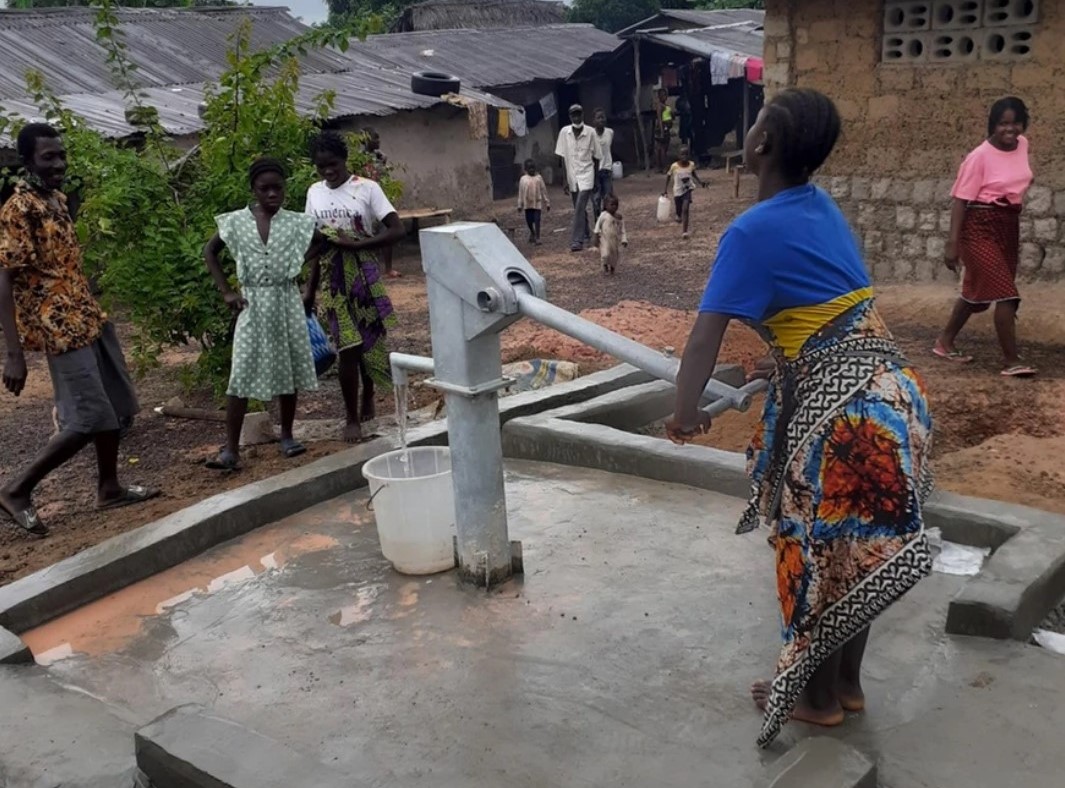
“The general health of the people started improving,” the group writes. “The children have time to play with each other as they should, since they don’t have to carry water many hours each day. The women also have time to do things other than carry water.”
The clean water is used for drinking, bathing, cleaning and even irrigation, which is helping to alleviate the food insecurity in the region. We’re so glad this team is using our technology to uplift more than 100,000 Liberians who now have clean water for the first time.
The Village Drill has secured clean water for more than 13 million people across 44 countries. The 100 wells in Liberia are part of the 14,000+ completed worldwide since 2011.
All photos courtesy Friends of Liberia

